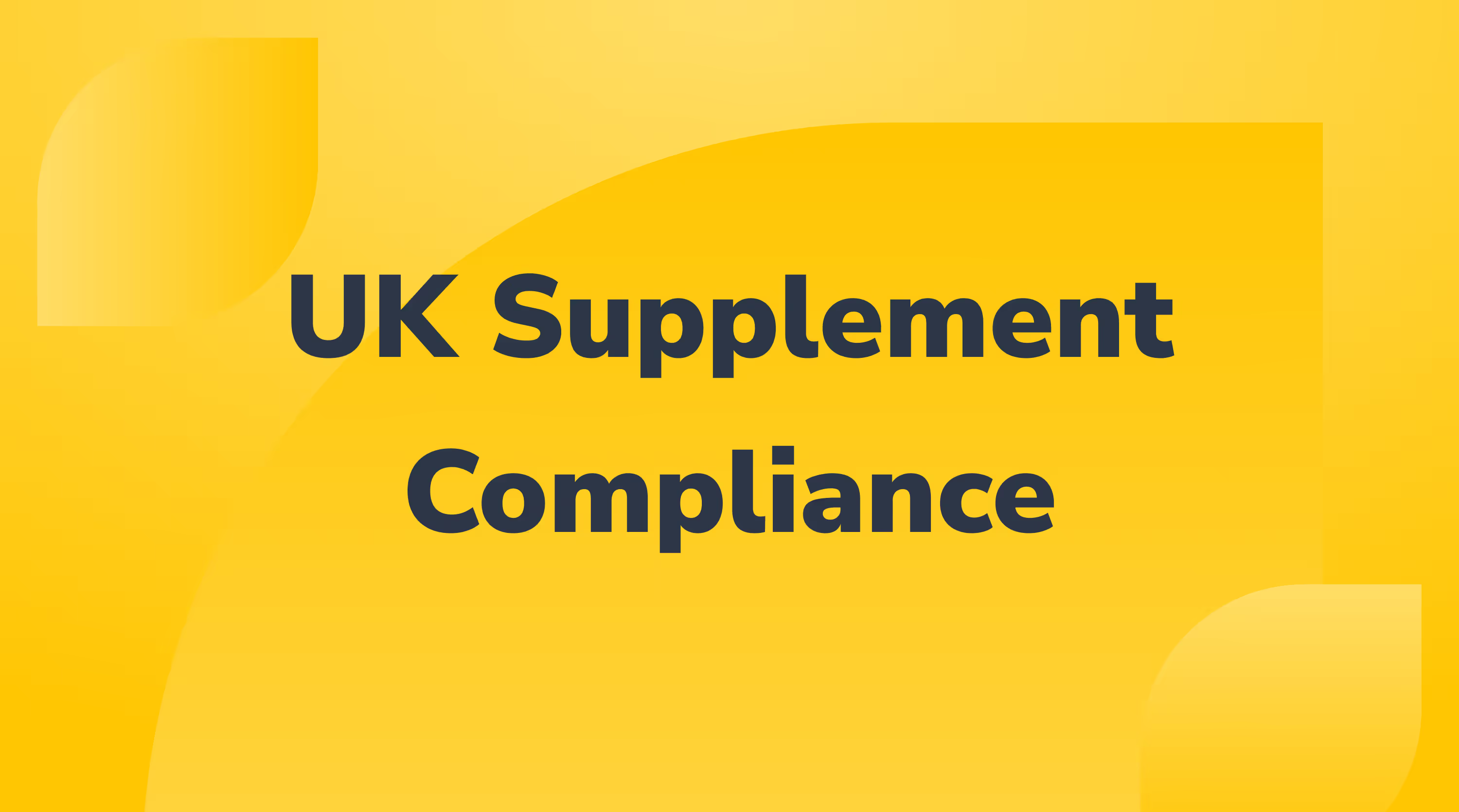How to Sell Food Supplements on Amazon UK: Navigating EFSA & Permitted Ingredients

The UK's health and wellness market is booming, and Amazon.co.uk has become a primary destination for consumers seeking vitamins, minerals, and food supplements. For brands, this represents a massive opportunity. However, the UK has one of the strictest and most prescriptive regulatory frameworks for supplements in the world, which is fundamentally different from the US system.
Success in this market depends not on what you can prove, but on adhering to what the law has already pre-approved. This guide will walk you through the three pillars of UK supplement compliance: permitted ingredients, authorized health claims, and correct labeling.
1. The Legal Framework: Supplements as "Food"
In the UK, supplements are not regulated like drugs or under a specific "supplement" law like DSHEA in the US. Instead, they are regulated as a special category of food. This is overseen by the Food Standards Agency (FSA) and based on retained EU law. This "food-based" approach dictates a highly cautious and prescriptive system.
2. Permitted Ingredients: The "Positive List" Principle
This is the first major hurdle for many brands, especially those from the US. In the UK, you cannot simply decide to use a vitamin or mineral in your product. It must be on a government-approved "positive list."
- The Rule: If a specific vitamin or mineral—or its chemical form—is not explicitly on the permitted list found in the Food Supplements Regulations, you cannot legally use it in your product.
- Novel Foods: If you wish to use an innovative ingredient that was not widely consumed in the UK/EU before May 1997 (e.g., certain botanical extracts, CBD, new sources of Omega-3), it may be considered a "Novel Food." These ingredients require a separate, extensive safety assessment and pre-market authorization from the FSA, which is a costly and lengthy process.
3. Health Claims: What You Are Legally Allowed to Say
This is the second, and most frequently misunderstood, pillar of UK regulation.
- The EFSA Register is Law: You cannot make any claim about a product's health benefits unless that exact claim for that specific ingredient has been scientifically substantiated and authorized by the European Food Safety Authority (EFSA) and adopted into the UK's legal register.
- No Freelancing: You cannot simply reference a third-party scientific study to back up a claim. If the claim is not on the official register, you cannot use it.
- Examples of Claims:
- Illegal Claim: "Reduces joint inflammation." (This is a medicinal claim).
- Potentially Legal Claim: "Vitamin C contributes to normal collagen formation for the normal function of cartilage." (This is an authorized, specific claim for Vitamin C).
- The Bottom Line: Your marketing copy and product benefits must be built directly from the list of authorized claims. Any deviation can lead to enforcement action and your Amazon listing being removed.
A full review of your product's ingredients, claims, and marketing copy against UK regulations is essential. Sitruna's compliance experts provide this service, ensuring your brand enters the market with a fully compliant and defensible product.
4. Mandatory Labelling Requirements
The information on your supplement's label is a legal requirement. It must be precise and clear.
The label must include:
- The term "Food Supplement".
- The name and UK address of the Food Business Operator (FBO) responsible for the product. International sellers must have a UK address for this purpose.
- A full list of ingredients, with any of the 14 major allergens emphasized.
- The names of the active vitamins or minerals.
- The quantity of the active ingredients per daily dose.
- The Nutrient Reference Value (NRV) percentage for vitamins and minerals.
- The recommended daily dose.
- A clear warning not to exceed the stated recommended daily dose.
- A statement that food supplements should not be used as a substitute for a varied diet.
5. Selling on Amazon.co.uk
Amazon's policies for supplements are extremely strict and mirror UK law precisely. Before listing your product, you must be prepared to provide:
- Proof of compliance and safety documentation.
- Clear images of your fully compliant product label.
- Evidence that your product does not make any unauthorized health claims.
- Adherence to FBA's specific policies for expiration-dated products, including minimum shelf life upon arrival at the fulfillment center.
Useful Resources
- UK Food Standards Agency (FSA) - Food Supplements
- UK Register of Nutrition and Health Claims
- FSA Guidance on Novel Foods
- The UK Food Supplements Regulations 2003
Precision and Compliance is Key
Success in the UK food supplement market is a game of precision. It's about working within a strict, pre-approved system and demonstrating quality and trustworthiness to the consumer. Brands that master this regulatory landscape can build a powerful and lasting presence.
Don't risk your launch on non-compliant ingredients or claims. Schedule a free discovery call with the Sitruna team at www.sitruna.com/meet for a comprehensive review of your supplement brand for the UK market.



